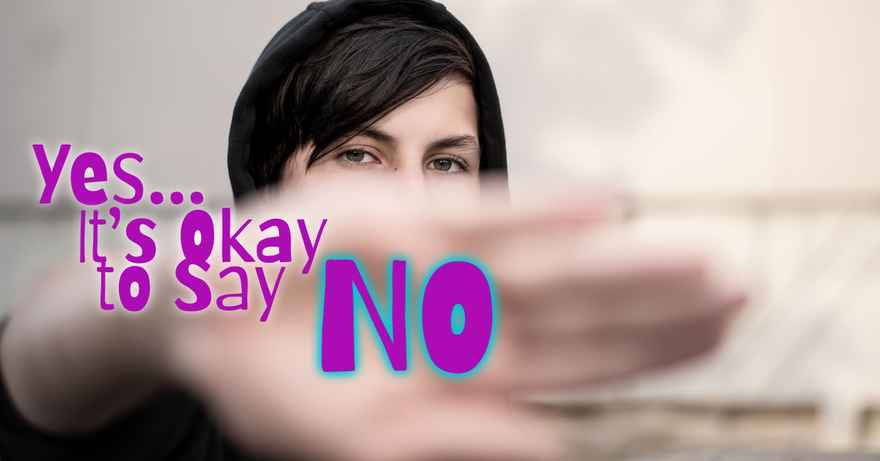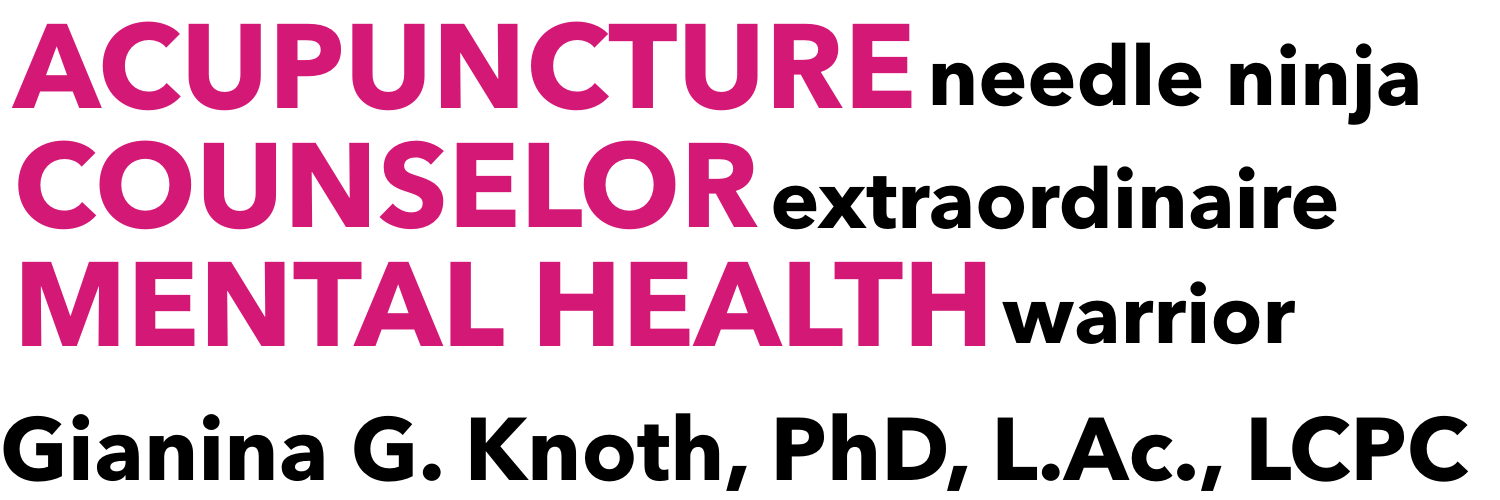Yes, It’s Okay to Say No

This week I was offered a volunteer leadership opportunity. The position is important, God-honoring, and has the ability to impact others lives positively. I left the meeting promising to pray about the decision. This is something I do before making most decisions except “Should I have coffee?”
That is always a yes.
However, no sooner did I get behind the wheel of my car did I feel a clear and resounding “No.” The answer came to me so quickly that it bothered me. So of course I questioned it. I kept asking.
Still “No.”

How can this be? How can a position serving others possibly be a “No?” Forget for a moment that I already have two other recurring volunteer roles that I've taken on, homeschooling my kids, and running my own business.
Details, darling. Details.
Regardless of the clear answer I already had I asked my husband and middle school-aged daughter to pray about it for me too. They also confirmed what I was feeling. I'm pretty sure my mom laughed out loud when I told her. I love her honesty. Brutal, but zero BS.
Once I accepted the “No” I began thinking about our relationship with that word. Why does saying “No,” even when it’s right, feel so wrong? Why do emotions like guilt and shame bubble up? Why do we feel like we’re being selfish or bad people? Why on Earth is “No” so hard to say? I’ve heard many people who identify as “people pleasers” say that they just can’t say no. Same goes for us Type A overachievers who never acknowledge our limits.
This is the crazy take it ALL on, get 'er done hot mess that is ME. Just sayin'.

I think saying “No” tends to elicit one of several feelings or identities:
We don’t want to look bad.
We don’t want to let people down.
We don’t want to be disliked.
We don’t want to lose a friend.
We don't want to tarnish our reputation.
We feel selfish.
We feel lazy.
We feel like we owe the person asking.
We see an inability to take on anything and everything that comes our way as a weakness—or worse—a failure.
I’m sure you could think of more reasons, especially if you also struggle to say “No.”

They (whoever they are) say “Nature hates a vacuum.” This has been the story of my life. Can you relate? Every time I set boundaries or open some breathing room in my double-booked, crazy-making schedule, along comes a need, a worthy cause, or another opportunity to step in and help out or lead.
Enter ego.
Oh, it looks like humility when we ignore every thought in our head screaming “Don’t do it!” However, when we say “Yes” when we should be saying “No” it’s just ego in disguise. Even if we don’t want to look bad or let people down it is still about how we look to others and what they think of us that we’re really worried about.
Us. It’s all about us.

When I say the word “ego” let me be clear about what I mean. The definition of ego is “A person's sense of self-esteem or self-importance.” Based on that definition our ego can either be “Yay, me!” or “Ugh, you failed again, you idiot.”
However, when we hear the word ego, most of us conjure the image of a person in our mind that makes our blood boil. We think of a person who thinks so highly of themselves they are damn near insufferable to be around. You know, the people who just know they’re amazing and awesome. All we know is they show zero trace of humility. Yes, that is one type of person, those with the giant self-aggrandizing ego. Blech.

However, there is another type of ego. Even with people who are consistently hard on themselves there is an ego at work. We all also know that person who is always giving, always puts everyone before themselves, and is drop dead tired, and dripping with resentment because of it. Despite that, these people often beat themselves up whenever they don’t meet—often impossible standards—that they have created for themselves. This too is ego, it’s just of the self-deprecating variety.
Stupid brain.

If my hypothesis about ego is true—and I could be wrong—then what we are really dealing with is not the task or the ask that comes our way, it’s about how we'll feel about ourselves or how others will see us based on our answer.
This is both good and bad news. The good news is we can call this guilt/shame spiral what it is, a choice. If we've been making one choice we can make a different one too. Worrying about what others think of us comes at the expense of our health, precious time, and maybe even our sanity just isn't worth it. The bad news is that we must to come to terms with the fear that drives our difficulty saying “No.” We have to kill that fear.
No mercy.
We have to make several belief-system shifts in order for this to happen.
(1) We need to believe that just because we are asked to serve doesn’t mean we’re supposed to.
(2) We have to realize that we are projecting our fear of seeming lazy, unhelpful, selfish, or uncaring to others upon ourselves. These are fears, not facts.
(3) We need to realize that setting boundaries is an act of self love, and anyone who doesn’t respect your boundaries isn’t really someone whose opinion you should put too muck stock in anyway. Right? (Nod you head yes, please.)
(4) We need to remind ourselves that we do not earn love and respect by jumping through hoops. We earn respect with our character, empathy, and honesty. I hope you know that in God's eyes you are of immeasurable value, and that is all that really matters.
(5) We need to see setting boundaries as a strength and a strategy rather than a weakness or a failure. Saying “No” to one thing allows us to put more of our energy and focus into what really matters. (I have a sneaking suspicion that you already know what that is.)
(6) We need to acknowledge and respond to resentment and exhaustion, the tell-tale red flags of saying “Yes” when we should have said “No.”
I’m not saying that whatever you’re being asked to do doesn’t matter, but maybe you need to spend more time with your children rather than picking up that extra shift at work. Maybe you need to push back on an unreasonable deadline because you can’t deliver the quality of work expected in the time given. You may need to pass on a volunteer opportunity because you’ll already serving elsewhere and it will spread you too thin. You may have to step away or even take a season away from whatever your doing in order to make your health number one.
Boundaries.
Saying “No.”
Heck, embracing the “No.”
This is self-love.
This is healthy.

Generally, if you’re worried saying “No” makes you bad, odds are it really doesn’t. Selfish people don’t bother themselves with worrying if they’re selfish. Lazy people usually don’t care what other people think about how they spend their time. They’re too busy focusing on number one. Making yourself a priority isn’t selfish, it’s necessary.
Consider this, if you keep getting asked to do impossible things, meet crazy deadlines, or take on more and more it is because people know you'll say “Yes.” It is because you’ve killed yourself to do it in the past. It’s because you’re reliable. They're counting on you taking whatever it is on because you always do. Who wouldn’t ask that person to help? Here’s a thought, take it as the compliment it is, but don't let that compliment turn into an obligation.
Remember, getting burned out breeds frustration, that grows into resentment, which ultimately manifests as anger.
Know your limits.
Set your boundaries.
Stop apologizing.
Maybe you’ll end up doing exactly what you’re meant to be doing, on your terms.
After all, aren't YOU worth saying "Yes" to?
Categories
- News (1)
- Healthy Balance (10)
- Motherhood (7)
- Parenting (7)
- Working Mom (4)
- Homeschooling (1)
- Pregnancy (1)
- Health (6)
- Vitamins (1)
- Herbs & Supplements (1)
- Holistic Health (6)
- Body Positivity (1)
- Health and Fitness (1)
- Diet and Health Eating (1)
- Technology (1)
- Tweens & Teens (6)
- Rules & Boundaries (5)
- Lifestyle (7)
- Mental Health (5)
- Writing & Poetry (1)
- AcuPatching (2)
- Acupuncture (1)
- Kid's Health (1)
- Marriage (3)
- Family Life (7)
- Christian Life (6)
- Women's Health (3)
- Girl's Health (3)

0 comments
Leave a comment
Please log in or register to post a comment